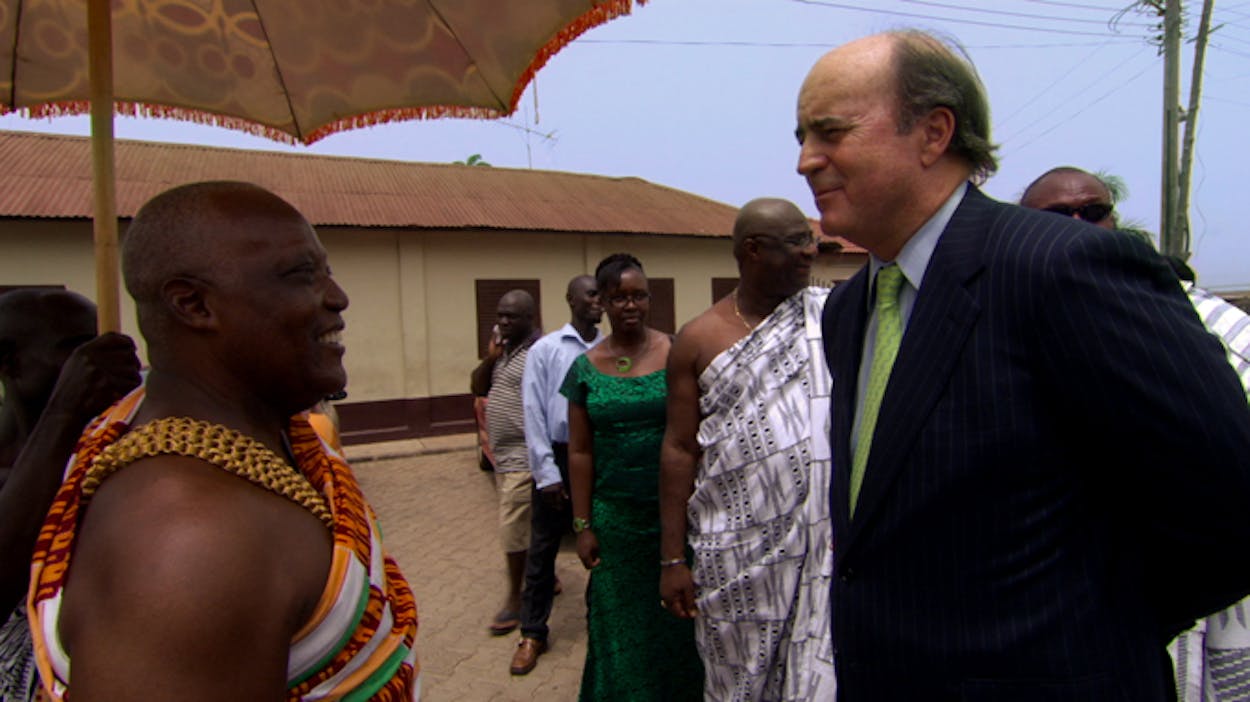Documentary Filmmaker Rachel Boynton has to be one of the great unsung reporters of our time. Her new movie, Big Men, is an amazing inside look at the current state—and stakes—of the global energy business. But more importantly, Boynton provides a timeless window into the hearts and minds of men who may very well have the best intentions when they are confronted with the opportunity for inconceivable wealth.
Bonyton’s access to corporate and governmental machinations—in Dallas, New York, Accra and the camps of Nigerian radicals—is matched by her unfettered insight into the thoughts, emotions, and ambitions of her players. Not for nothing does the director quote Milton Friedman at the beginning of her film: “Of course none of us are greedy. It’s only the other fellow who’s greedy. The world runs on individuals pursuing their separate interests.”
In Big Men, those interests concern one very big oil deal. A Dallas oilman, Jim Musselman, the CEO of Kosmos energy, contracts with the government of Ghana to find and develop the first oil field in that country. Over the next four or so years, we see just what happens to that deal, and to Musselman, as he goes about negotiating with tribal kings, Manhattan investment bankers and an assortment of Ghanian officials, among others, to bring progress and wealth to Ghana and, ostensibly, a nice profit for himself and his (comparatively) small, independent oil company. A second, plotline—far darker and more cautionary—plays out next door in Nigeria, where the discovery of oil five decades ago has made for a country awash in pollution, corruption, and intense tribal warfare. More than $400 billion, the movie reminds us, has been stolen from the country’s people in fifty years.
Along with being a morality tale, Big Men also offers a meditation on the nature of risk, a topic just about every oilman feels no one outside the business really understands. Musselman is nearly drowned by them—by the dealmaking in this country and in Ghana, by the perceptions of the press and, eventually, the US Department of Justice. If the film has a flaw, it is that Boynton fails to give us an accounting of what it took financially, scientifically, and even physically to get the massive project off the ground, and then off the coast of Ghana, in the first place.
Still, Big Men remains a compelling drama in real life, one not to be missed. Which way will Ghana go? Can Musselman hold on to his find—and his company—when a new government comes in and his New York investors get antsy? Without spoiling anything, let’s just say the plot of Big Men is as rich and twisted as any HBO miniseries.








